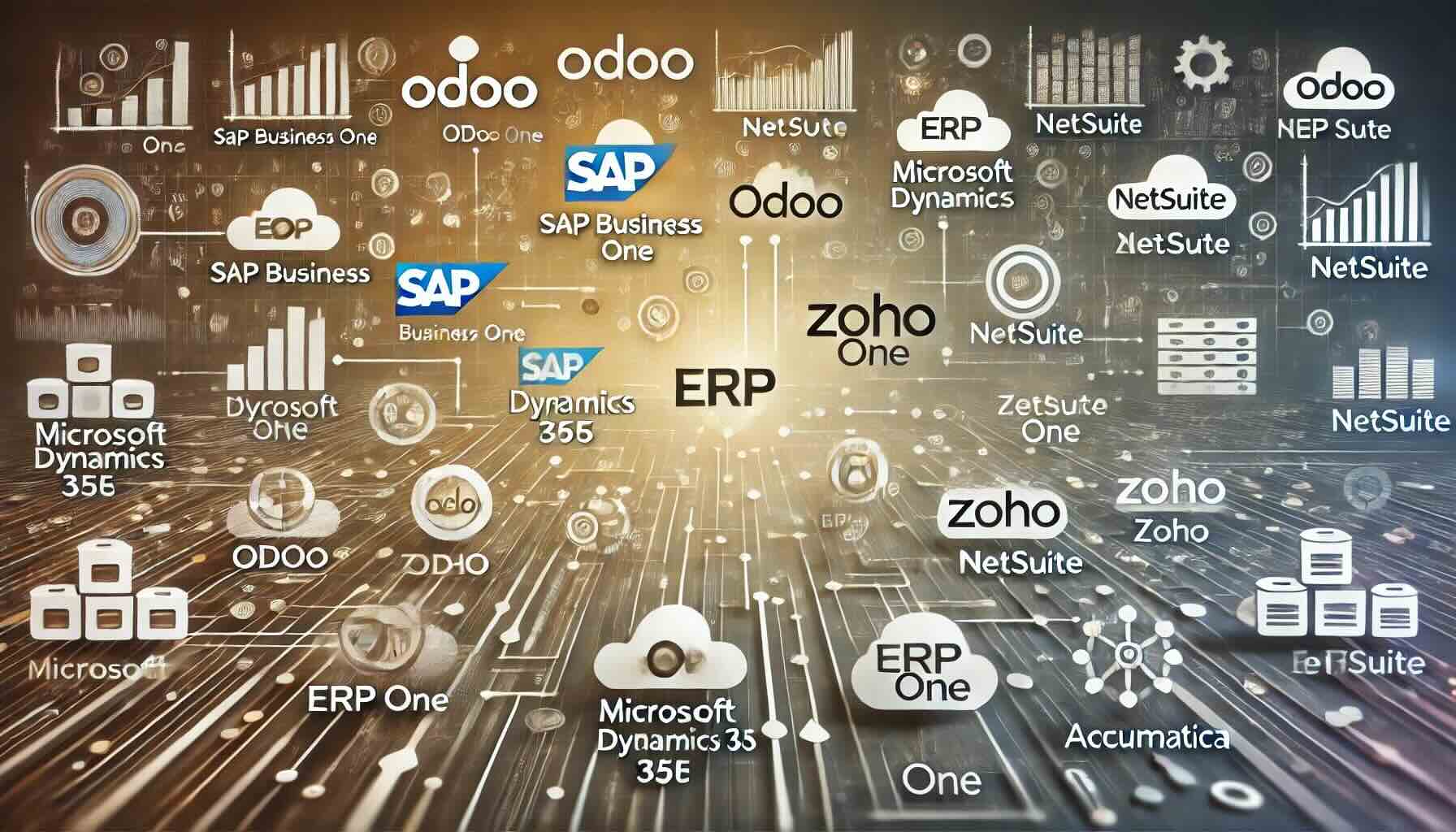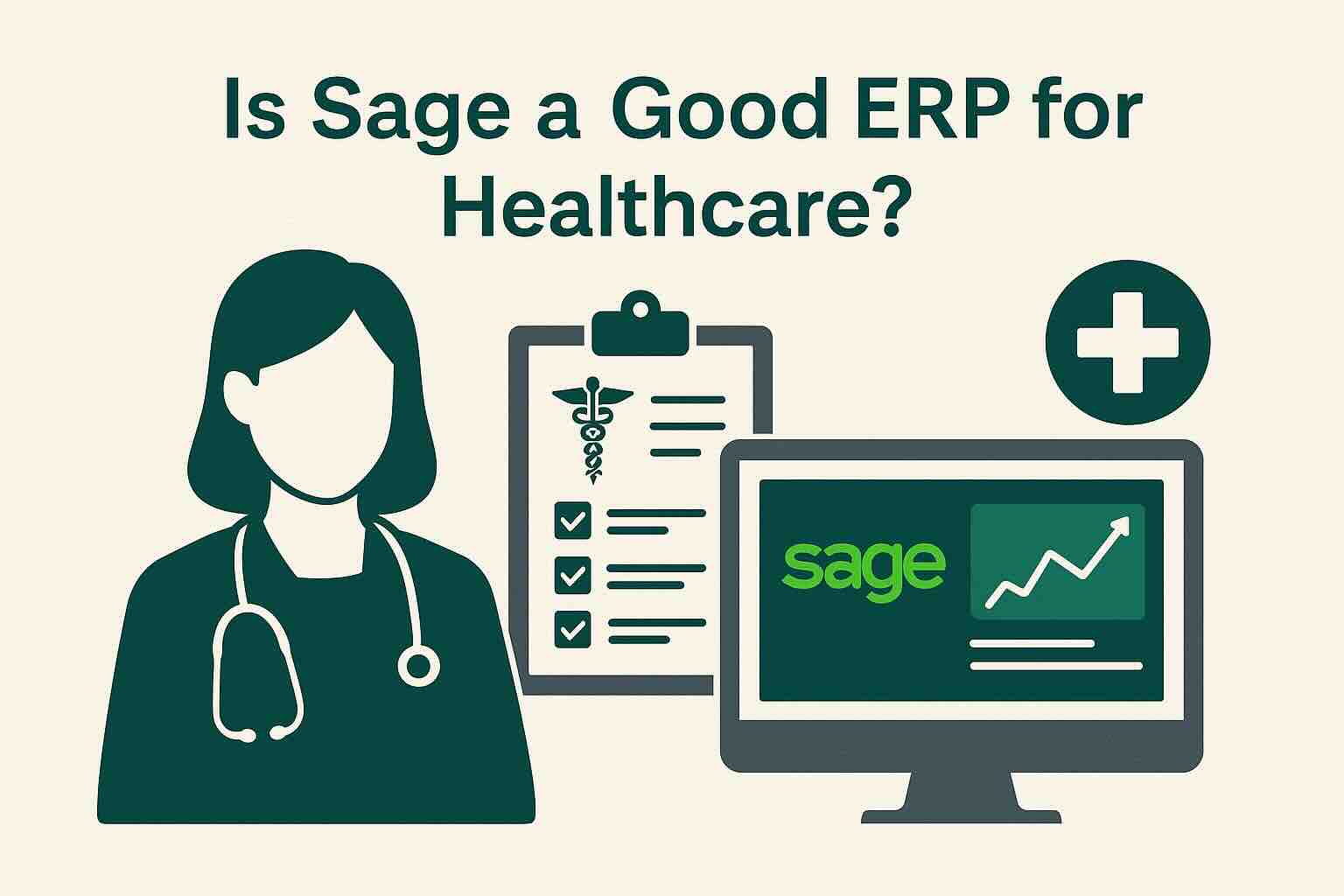Odoo Competitors: Top Alternatives for ERP and Business Management Solutions

In the dynamic world of enterprise resource planning (ERP) and business management software, Odoo has emerged as a powerful and flexible option for companies of all sizes. With its comprehensive suite of applications, Odoo offers everything from CRM and project management to inventory and accounting, making it a versatile choice for businesses seeking an all-in-one solution. However, the landscape of ERP systems is vast, and there are several other options that may better suit specific business needs. In this article, we’ll delve into Odoo’s strengths and explore its top competitors, giving you a well-rounded view of what’s available.
Understanding Odoo: A Brief Overview
Odoo is an open-source ERP solution that provides a wide array of business applications integrated into a single platform. Its modular architecture allows businesses to pick and choose the features they need, making it highly customizable. Whether you’re a small startup or a large enterprise, Odoo scales to meet your needs with modules for sales, finance, inventory, HR, e-commerce, and more.
Key Strengths of Odoo:
- Modularity: Odoo’s modular structure means you can start with just a few apps and add more as your business grows.
- Cost-Effectiveness: As an open-source solution, Odoo offers a competitive pricing model, especially for businesses that can manage their own deployment and customization.
- Customization: With Odoo Studio, businesses can easily customize their apps without extensive coding knowledge.
- Community and Support: A large community of developers and a range of official support options ensure businesses can get help and enhancements when needed.
Despite these advantages, some businesses may find that Odoo doesn’t fully meet their specific needs or may prefer a different solution for various reasons, such as ease of use, industry-specific features, or integration with existing systems. Below, we explore several top competitors that offer viable alternatives to Odoo.
1. SAP Business One
Overview: SAP Business One is a well-established ERP solution tailored for small and medium-sized enterprises (SMEs). It offers a full suite of tools covering finance, sales, customer management, and supply chain operations. Known for its reliability and comprehensive features, SAP Business One is particularly appealing to businesses looking for a stable and well-supported platform.
Key Features:
- Extensive financial management tools.
- Integrated CRM and sales functionalities.
- Advanced inventory and supply chain management.
- Strong analytics and reporting capabilities.
Why Choose SAP Business One? Businesses that prioritize a proven track record and global support might prefer SAP Business One over Odoo. It’s particularly strong in industries like manufacturing and wholesale distribution. However, SAP Business One can be more costly and complex to implement, making it a better fit for companies with larger budgets and dedicated IT resources.
2. Microsoft Dynamics 365
Overview: Microsoft Dynamics 365 is a robust suite that combines ERP and CRM functionalities within a single platform. It’s highly flexible and can be tailored to meet the needs of businesses of all sizes. Dynamics 365 is especially powerful for companies already invested in Microsoft’s ecosystem, as it integrates seamlessly with tools like Office 365 and Azure.
Key Features:
- Seamless integration with Microsoft Office and Azure.
- AI-driven insights for enhanced decision-making.
- Customizable workflows and dashboards.
- Comprehensive CRM and customer service tools.
Why Choose Microsoft Dynamics 365? For businesses that rely heavily on Microsoft tools, Dynamics 365 offers unmatched integration and continuity. Its cloud-based architecture ensures scalability and global accessibility, making it an excellent choice for growing companies. However, compared to Odoo, Dynamics 365 may have a steeper learning curve and higher costs, particularly in terms of licensing and customization.
3. NetSuite
Overview: NetSuite, an Oracle-owned product, is a comprehensive cloud-based ERP system popular among growing mid-sized businesses and enterprises. It offers a unified platform for managing various business functions, including finance, CRM, e-commerce, and supply chain management. NetSuite’s strength lies in its ability to handle complex, multi-national operations.
Key Features:
- Real-time financial and operational visibility.
- Multi-currency, multi-language support.
- Strong e-commerce capabilities.
- Extensive suite of business intelligence tools.
Why Choose NetSuite? NetSuite is ideal for companies with complex needs, particularly those operating globally or with significant e-commerce operations. Its comprehensive feature set can outshine Odoo in terms of depth and scalability for larger enterprises. However, NetSuite’s cost structure can be prohibitive for smaller businesses, and its implementation process can be lengthy and complex.
4. Zoho One
Overview: Zoho One is an all-encompassing suite of business applications that includes everything from CRM to finance, HR, and project management. Zoho’s strength lies in its affordability and ease of use, making it an attractive option for small and medium-sized businesses that need a simple, integrated solution.
Key Features:
- Over 40 integrated business applications.
- User-friendly interface with minimal setup.
- Strong mobile app support.
- Customizable workflows and automation tools.
Why Choose Zoho One? For businesses seeking a cost-effective alternative to Odoo with a wide range of features, Zoho One is an excellent choice. It’s particularly well-suited for smaller businesses that need a straightforward, easy-to-implement solution. However, while Zoho One offers breadth, it may lack the depth and customization options found in Odoo or other more sophisticated ERP systems.
5. ERPNext
Overview: ERPNext is an open-source ERP solution that caters to small and medium-sized enterprises looking for a highly customizable and cost-effective option. Like Odoo, ERPNext offers a range of modules covering various business functions, but with a focus on simplicity and ease of use.
Key Features:
- Open-source with a strong community for support.
- Comprehensive modules for finance, HR, manufacturing, and more.
- Cloud and on-premises deployment options.
- Customizable workflows and reports.
Why Choose ERPNext? ERPNext is an excellent alternative for companies that need a flexible and customizable solution without a hefty price tag. Its open-source nature allows for extensive customization, making it a strong contender for businesses with specific needs. However, those without technical expertise might find the setup and ongoing maintenance more challenging compared to Odoo.
6. Acumatica
Overview: Acumatica is a cloud-based ERP solution that delivers a seamless experience across finance, CRM, distribution, and manufacturing functions. It is designed to be flexible and scalable, making it a solid choice for businesses that anticipate growth.
Key Features:
- Cloud-based access from any device.
- Integrated CRM and sales management.
- Customizable dashboards and analytics.
- Strong support for distribution and manufacturing.
Why Choose Acumatica? Acumatica’s cloud-native design and resource-based pricing model make it an appealing option for growing companies, particularly those in the distribution and manufacturing sectors. Its flexibility and scalability can match or even exceed Odoo’s capabilities in certain areas. However, Acumatica’s pricing based on resources rather than users may lead to unpredictability in costs as the business grows.
Conclusion: Why Odoo Still Stands Out
While Odoo has a number of strong competitors, it remains a popular choice for businesses of all sizes due to its modularity, cost-effectiveness, and extensive customization options. Odoo’s open-source nature allows businesses to tailor the solution precisely to their needs, and its wide range of applications ensures that nearly every aspect of a business can be managed from a single platform.
For companies looking for a flexible, scalable, and cost-effective ERP solution, Odoo remains a standout option. However, the best ERP system for your business ultimately depends on your specific needs, budget, and growth plans. Whether you choose Odoo or one of its competitors, it’s important to carefully evaluate how each option aligns with your business strategy to ensure long-term success.
To compare these ERP solutions and many more, you can use our new AI-powered Compare ERP tool. It’s free to use and you get a guaranteed discount on your first year’s licence fees with a referral from Compare ERP.









